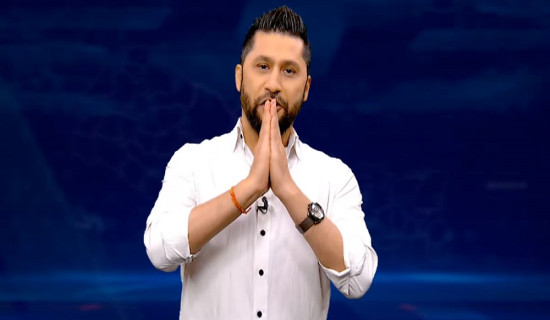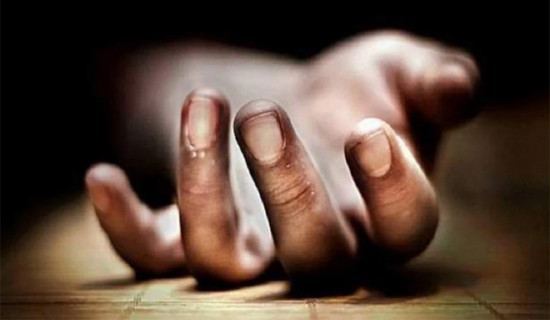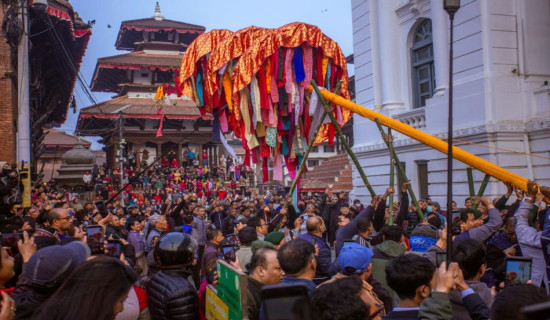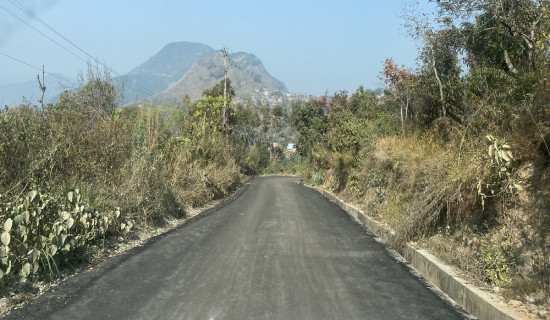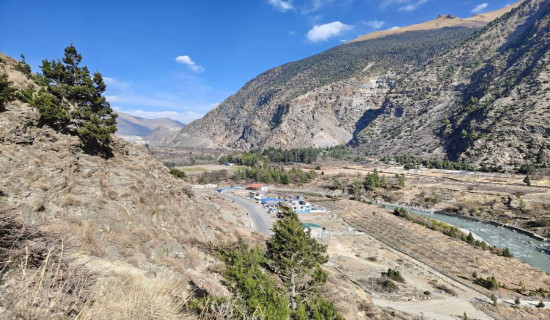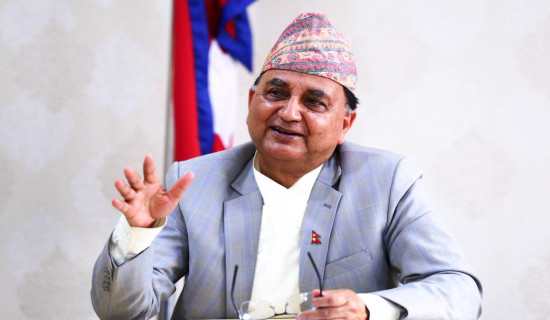- Tuesday, 24 February 2026
Loktantra In 16th Year
Achievements And Missed Opportunities
Narayan Upadhyay
As we observe the 16th year of the restoration of democracy, called Loktantra in Nepali parlance, a reflection on achievements and missed opportunities during these years is imperative. A decade and a half should be enough for a nation to reap the dividends of its democracy. However, the fruit of democracy, restored through a massive people's uprising of 2006, is yet to ripen to its fullest. Of course, the hard-earned Loktantra has guided the nation towards attaining some important goals.
After the restoration of democracy, peace returned as the rebel Maoists joined the mainstream of politics by laying arms following the Comprehensive Peace Accord (CPA) in November 2006. Political parties turned the country into a federal republic democratic state by showing the autocratic monarch the door. Years of struggle to have a constitution prepared by the people's representatives was realised after the historic Constituent Assemblies, first elected in 2008 and then in 2014, brought out a constitution that not merely created republicanism and federalism and carved out seven provinces but also turned our governance system into an inclusive one.
Inclusive charter
One of the key aspects of the new constitution is it has favoured a common citizen to become the heads of the state and government, besides facilitating devolution of power to the provinces and their local units. Elections for local bodies, the provincial and federal governments have made the new constitution vibrant that safeguarded democratic values. The country is now on the cusp of holding yet another local election and then elections for federal and provincial parliaments, which have further highlighted the significance of the federal, republic and democratic charter, attained on the strength of the people’s movement.
However, not everything has moved according to the desires and aspirations of the people whose unwavering participation in the uprising goaded political parties and leaders to bring changes in the political system. Critics point out that despite all the changes in the political arena, the lives of the common masses remained unchanged. A large section of the people is yet to see positive changes taking place in their lives. For many, the system of governance has changed but the character of governance has remained the same. Many leaders have tended to eulogise the political change or changes in the system of governance but have failed to change their attitude and working style. They have given little care to the fact that the change in governance is futile unless it is linked to the lives of ordinary people.
During the years of Loktantra, parties appear to have overlooked the spirit of the uprising and popular sentiments. They are enchanted with power while the masses have languished. Whichever party has taken to the helm has shown hunger for power at the cost of democratic values and has disregarded the people's requirements and aspirations. For example, a party leader, after he lost majority, committed the mistake of dissolving parliament unconstitutionally and brought ordinances to deceiving the parliament. All this for remaining glued to power.
To uphold the constitution and democracy, the judiciary had to arbitrate, repeatedly, to teach a lesson to wayward leaders how to respect democratic provisions. The country’s Supreme Court turned the dissolution of parliament null and void, which saved the country from political chaos. More bothersome is the fact that the same court that earned wider praise reinstating the dissolved parliament, a pillar of our democracy, has fallen into controversy. The chief justice has remained suspended, purportedly for engaging in corrupt ways that have defiled our justice delivery system.
Owing to leaders' lacklustre performance, development and people's welfare programmes have moved at a snail's pace. Escalating prices have shrunk people's purchasing power and rising imbalances in trade have threatened the country's economy. The nation has seen no effective improvement in the delivery of public services. Shortages of commodities and long queues at government offices issuing passports and licences showed people could not get even regular public services with little effort. Remote areas have suffered most owing to lack of basic public facilities. But leaders showed no urgency for standardising the delivery system.
On the social front, racial and gender discrimination and the practice of untouchability have persisted. Women are still unable to have proper representation in state and decision-making organs as provisioned in the charter. Besides addressing these issues, it is imperative for the state, parties and leaders of a welfare state like Nepal that they should bring decent improvements in public education, health, and other facilities. While citizens reel from this apathy, the leaders and parties have utilised their public posts to shield their private businesses and have invested in such businesses. Many of them, including the so-called communist revolutionary leaders, have led an affluent lifestyle, for which they have been termed as new kings.
Outrage
Over the years, public sentiment has grown against leaders' behaviours and lifestyle. For many political analysts, our leaders are guilty of rendering constitutional organs weak. These organs are responsible for dealing with the activities of rulers and public officials. Indeed, democracy in our nation has run into hurdles because of factionalism in the parties and among leaders. Ambitious leaders have made democracy a hostage. What irks the common person is - neither the leaders nor the parties in power are ready to hear criticism against them.
In recent times, civil outrage against this tendency of leaders has only grown, which is indeed worrisome. Democracy will not survive for long in any nation where only parties and leaders have their ways and where the people are pushed to the fringes. To make democracy vibrant and purposeful, parties and leaders must learn to become sincere with their people and the nation, and must prioritise people's welfare and the nation's well-being before anything.
(Upadhyay is Managing Editor of this daily)








